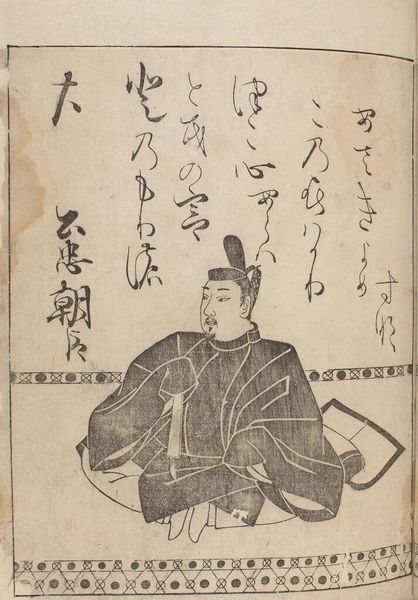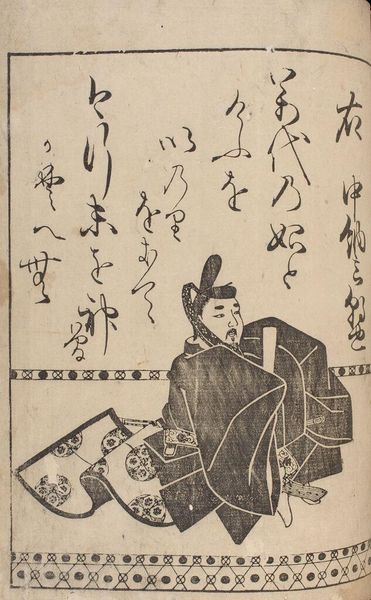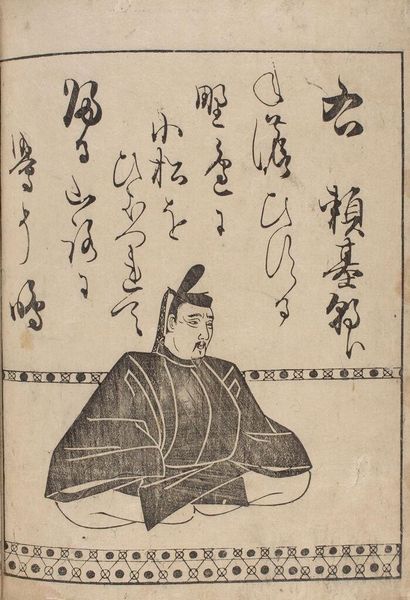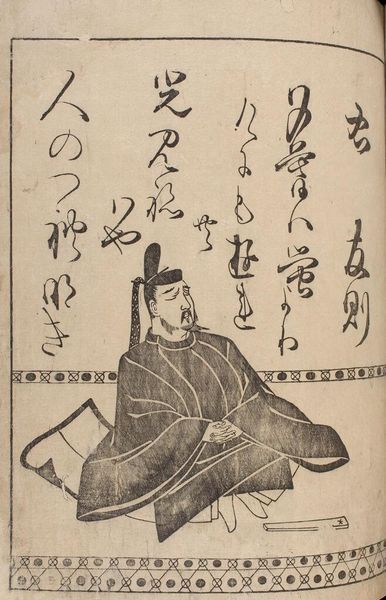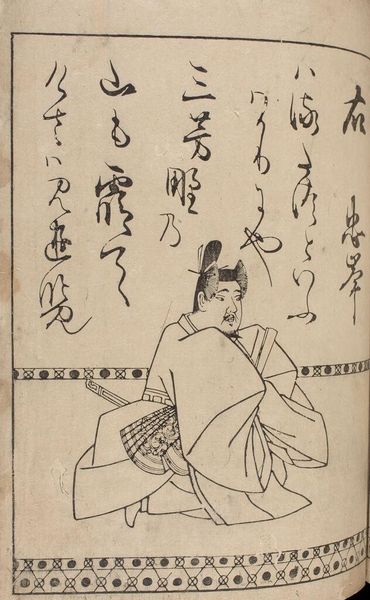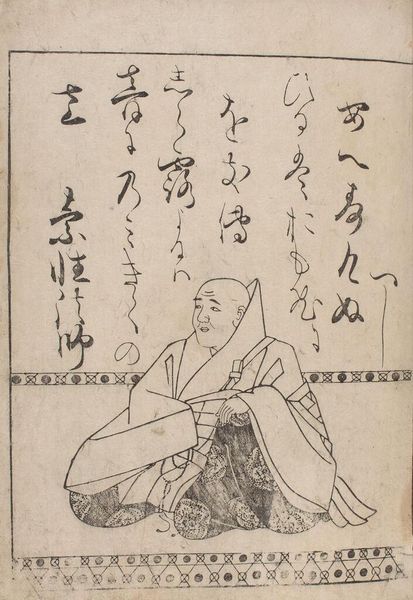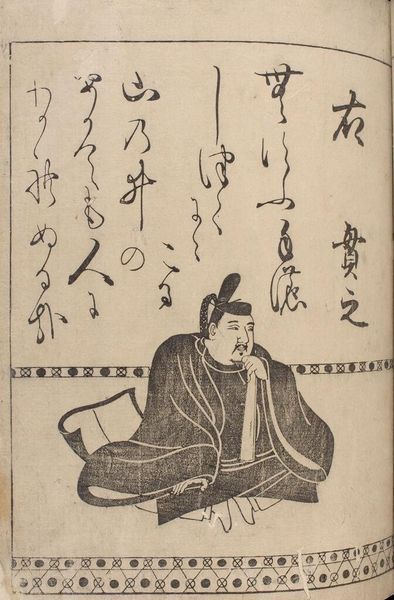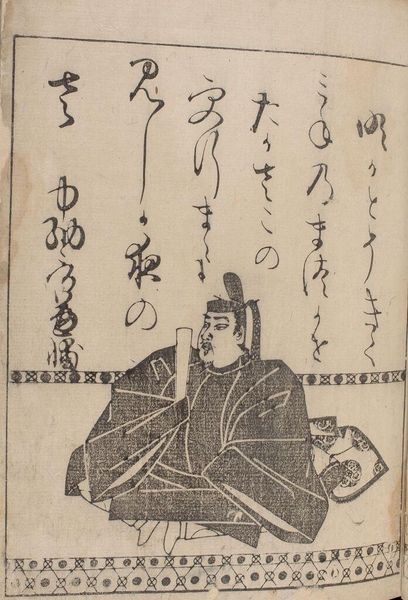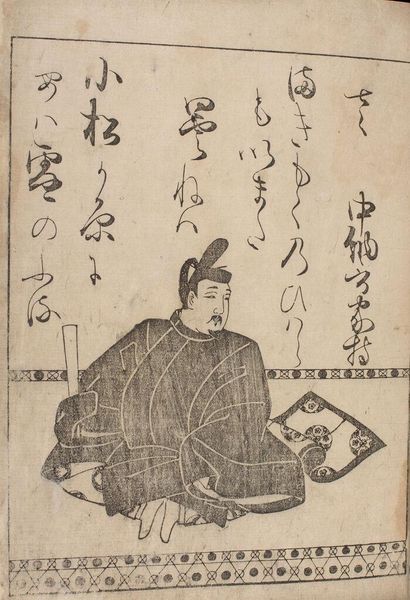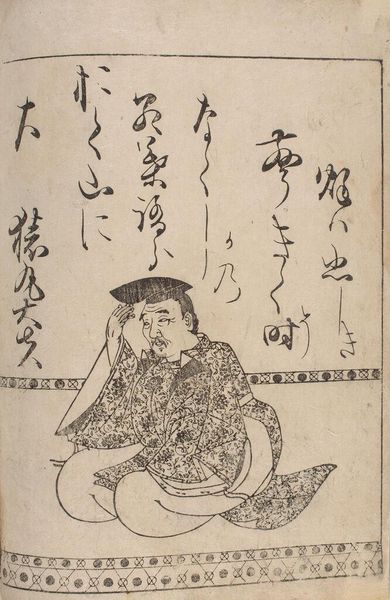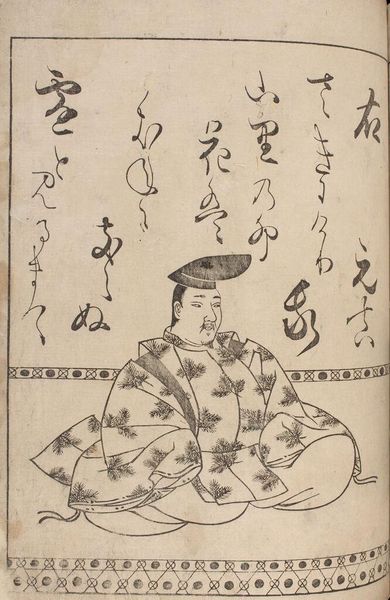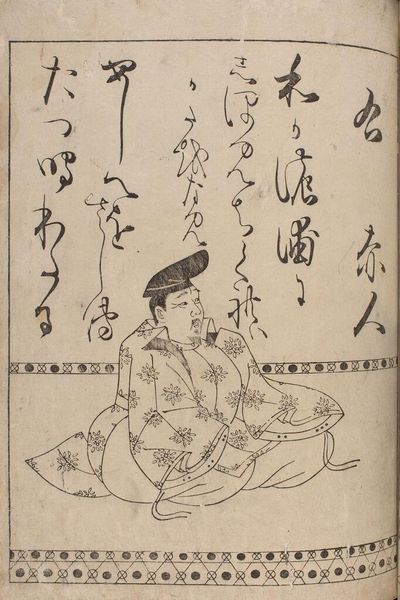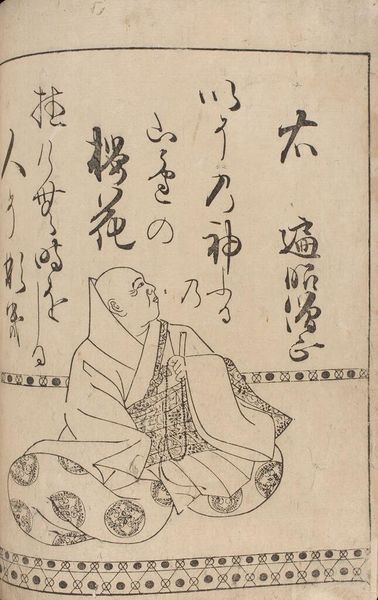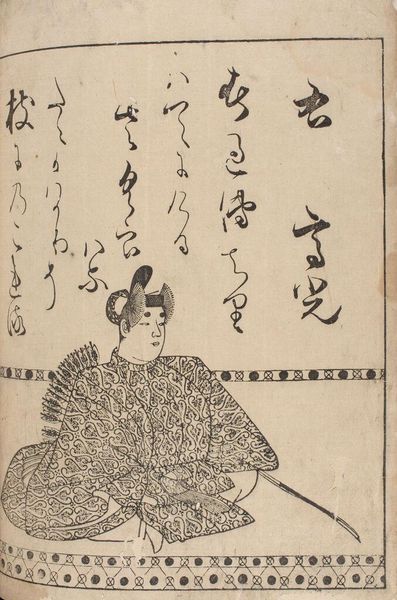
Poet Ånakatomi no Yoshinobu (921-991) from page 9A of the printed book of "Thirty-Six Immortal Poets" (SanjÅ«rokkasen), KÅetsu edition c. 1610
0:00
0:00
Dimensions: H. 34.5 cm x W. 24.1 cm (13 9/16 x 9 1/2 in.)
Copyright: CC0 1.0
Curator: It has a rather somber feel to it, wouldn't you say? The lines are so stark. Editor: Indeed. This is a page from the KÅetsu edition of "Thirty-Six Immortal Poets," featuring Ånakatomi no Yoshinobu. Hon'ami KÅetsu's calligraphy defines this work, reflecting Momoyama period aesthetics. Curator: I am struck by the printing process itself. Look at the textures, the layering of ink on paper; it speaks to a careful process of production, of skilled labor. Editor: Absolutely. Books like this held immense cultural significance. They helped canonize poets, shaping literary tastes and contributing to the visual culture of the era. The act of collecting and displaying such books became a marker of status. Curator: The materiality is intrinsic to its meaning; the paper's fiber, the ink's composition, all contribute to its value as a cultural artifact. The imperfections themselves tell a story of creation. Editor: A powerful reminder of the socio-political forces that shaped artistic production and reception in that time. Curator: Precisely. It’s so much more than just ink on paper; it is a tangible representation of history and labor. Editor: I agree; it's a testament to the enduring legacy of cultural heritage.
Comments
No comments
Be the first to comment and join the conversation on the ultimate creative platform.
